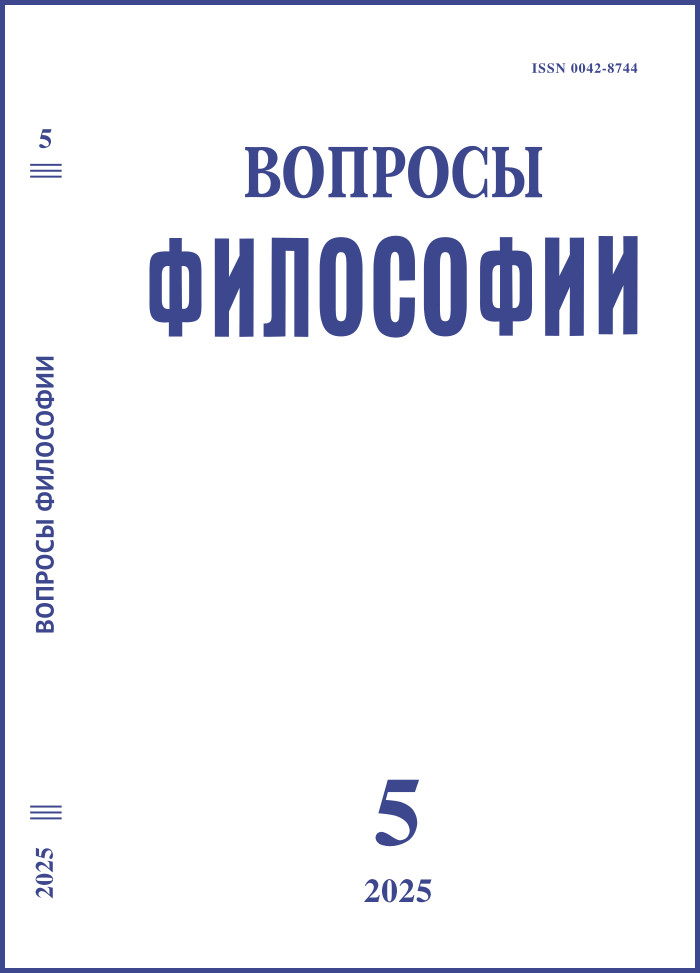Where We Are Not Alone (Reflections on the Book)
DOI:
https://doi.org/10.21146/0042-8744-2025-5-182-193Keywords:
information theories, systemic studies, analysis of modernity, chronotope, mathematics, subject-witness, spirituality, symbolic, name, infiniteAbstract
The article examines the constructive problems of philosophy and the humanities as presented in V.P. Troitsky’s book The Path and the Way, or Onomatodoxy (St. Petersburg: Aletheia, 2024). The uniqueness of this publication is highlighted, as it combines philosophical and humanitarian analysis of modernity with research in mathematical programming, information theory, and systemic studies. Against the backdrop of numerous works devoid of personalist intentions, V.P. Troitsky’s book emerges as both a challenge and an affirmation of the nearly lost personalist perspective in contemporary Russian philosophical and humanitarian thought. The author of the article emphasizes that the book’s reflection on personal creative destiny is intertwined with the search for a relevant figure of the modern philosopher, who appears either as a subject-witness or as a “theoretical humanist”. From the perspective of arithmology, V.P. Troitsky’s book is a “transindividual” study that serves as both a diagnosis and a prognosis of possible paths and strategies of thought. In this interdisciplinary research, ideas are copresent in their universal scope and meaning. The book is about the loyalty and dedication to science of the people to whom the narrative is dedicated. Its focus on numerical combinations and concrete realities – symbolism, expressiveness, the combinatorics of numbers and ideas – contributes to fostering an attentive and insightful philosophical attitude toward both past and contemporary reality.

